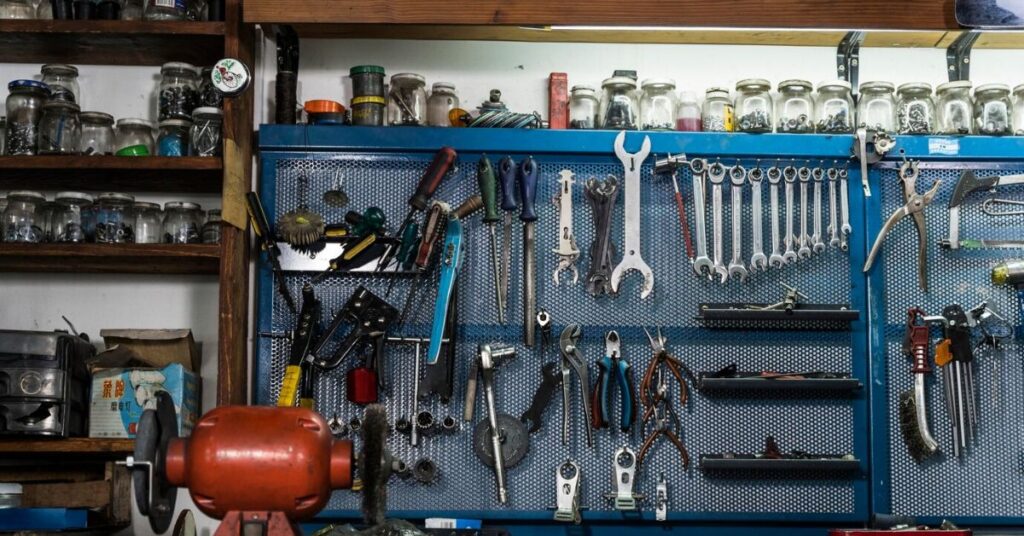Behind every great invention and everyday repair is a tool. And behind that tool is often a local shop that sold, explained, or even fixed it. The tool shop is more than a place to buy screwdrivers or socket sets. It’s a cultural cornerstone that shapes how we build, fix, and imagine.
Before big-box chains and next-day delivery, the local tool shop stood at the intersection of necessity and invention. It supplied farmers with plow parts, mechanics with torque wrenches, and kids with their first set of Allen keys.
The origin of tool shops in America
Tools for local survival
Every town had different needs. In farming communities, tool shops sold sickles, spades, and gear to fix tractors. In urban areas, they stocked plumbing wrenches, hammers, and precision tools for construction. This hyper-local focus made tool shops central to everyday survival. They weren’t just retailers—they were problem solvers.
The tool shop is a cultural fixture
A place for advice and stories
What set tool shops apart wasn’t just the products—they were spaces for conversation. Shopkeepers weren’t salespeople. They were listeners, mentors, and guides. Someone would come in for a new drill bit and leave with a full understanding of how to use it and why it matters.
A classroom without walls
Long before YouTube tutorials, tool shops served as live instructors. If a customer brought in a rusted part, the shopkeeper might explain how to fix it or walk out back and do it for them. This hands-on learning built skills across generations. Tool shops weren’t just part of the community. They helped build it.
Tools that shaped industries
Agriculture and self-reliance
As America expanded westward, agriculture became the backbone of rural life. Farmers couldn’t rely on distant suppliers for gear and repairs. The tool shop is filling that gap. They stocked scythe blades, hoes, grease guns, and wrenches for tractors. They also carried the repair kits, sharpening stones, and replacement belts that kept everything running.
Automotive revolutions
With the rise of the automobile, a new kind of customer walked into tool shops—mechanics and hobbyists. The car brought a wave of specialized tools: torque wrenches, jack stands, and spark plug gauges. Tool shops became central to this new mobility.
The home workshop boom
The post-war do-it-yourself era
After World War II, America saw a surge in homeownership. With that came a wave of do-it-yourself culture. Tool shops stocked power drills, saws, sanding machines, and screw sets. People started building their furniture, fixing plumbing issues, and restoring old homes.
More than tools, it was empowerment
The tool shop gave people confidence. Whether someone wanted to fix a leaky faucet or build a birdhouse, they could walk into the shop with a question and leave with both an answer and the gear to make it happen. That kind of empowerment—real, physical, hands-on—can’t be downloaded or shipped overnight.
The modern tool shop and its new role
Digital convenience, local trust
Today, many local tool shops have websites, offer curbside pickup, and even ship products. But their core value haven’t changed. They still offer something online stores can’t: real conversation and tactile decision-making.
You can hold the tool, feel its weight, ask how it works, and walk out confident that it will do the job. For beginners, especially, that interaction is priceless.
Supporting sustainability
In a world focused on recycling and reducing waste, tool shops are a critical part of the repair economy. They help customers fix what’s broken instead of throwing it away.
They stock replacement parts, lend advice, and often carry specialized tools that extend the life of machines and gear. Tool shops aren’t just selling tools—they’re helping people and the planet in the process.
Conclusion
The story of the tool shop is of quiet importance. It never shouted for attention, but it helped build homes, fix engines, raise barns, and spark ideas. It stood behind every invention, every repair, and every handmade project.
Today, even with digital tools and smart machines, the physical act of building still matters. And the tool shop—whether down the street or online with a local heart—continues to fuel that drive. It’s a place where work meets wisdom and where small parts lead to big possibilities.
FAQs
What is typically sold at a tool shop?
A tool shop usually carries hand tools, power tools, fasteners, safety equipment, and specialty tools for mechanics, carpenters, plumbers, and general home-repair needs.
Are tool shops good for beginners?
Yes, tool shops are great for beginners because they offer in-person advice, demonstrations, and help with selecting the right tools for any project.
How do tool shops support sustainability?
By providing parts and guidance for repairs, tool shops encourage fixing over replacing.
Can I still find specialized tools at small tool shops?
Absolutely. Many local tool shops carry hard-to-find tools or parts and can even order specialized items that big retailers no longer stock.







